-
 Cash-strapped Nigerians turn to YouTube for entertainment
Cash-strapped Nigerians turn to YouTube for entertainment
-
Two dead as fans, police clash before Copa Libertadores game in Chile
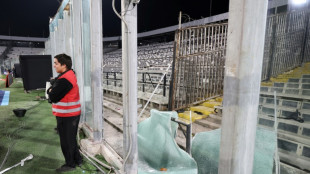
-
 Flowers in their hair: Shan boys ordained into Buddhist monkhood
Flowers in their hair: Shan boys ordained into Buddhist monkhood
-
Edwards leads Wolves past Grizzlies as playoff race heats up
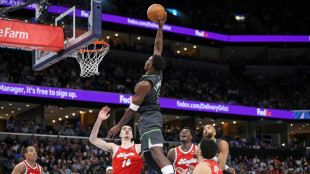
-
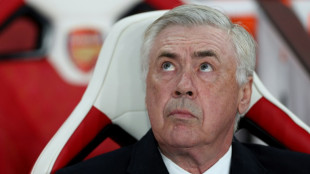 Ancelotti questioned as Real Madrid face Alaves
Ancelotti questioned as Real Madrid face Alaves
-
Old foes Bayern and Dortmund face off amid spectre of European exit

-
 Early holiday, more fans: Philippines schools adapt to climate change
Early holiday, more fans: Philippines schools adapt to climate change
-
In skies, as on land, European forces face gaps if US pulls back
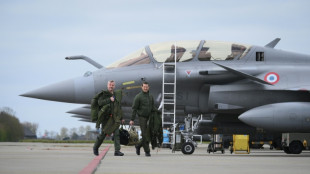
-
 Digital divas: Can Japan's virtual YouTuber craze crack America?
Digital divas: Can Japan's virtual YouTuber craze crack America?
-
WHO pandemic agreement talks face deadline crunch

-
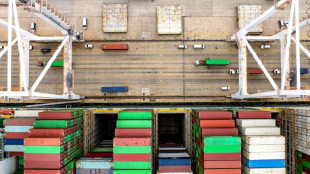 Stocks, dollar sink and gold hits record as Trump tariff panic returns
Stocks, dollar sink and gold hits record as Trump tariff panic returns
-
LeMond hails 'one in a million' Pogacar ahead of Paris-Roubaix debut
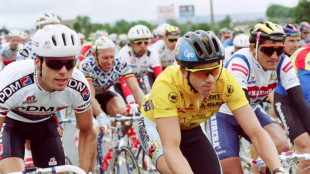
-
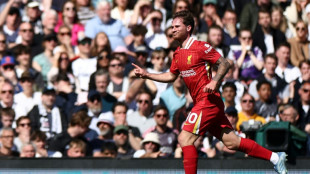 Liverpool can move closer to the title as top five tension mounts
Liverpool can move closer to the title as top five tension mounts
-
Trump admits trade war 'cost' as markets hit

-
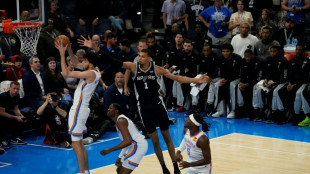 AI only just beginning to revolutionize the NBA game
AI only just beginning to revolutionize the NBA game
-
Despite Trump pause, overall US tariff rate at highest in a century
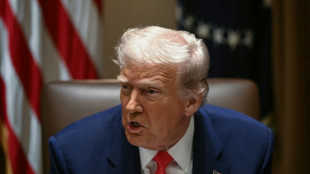
-
 'A pain that doesn't subside' at funerals for Dominican nightclub disaster victims
'A pain that doesn't subside' at funerals for Dominican nightclub disaster victims
-
Panama deal allows US to deploy troops to canal
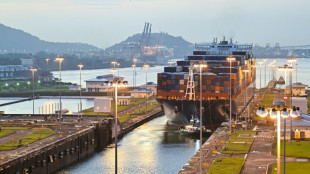
-
 US firm says it brought back extinct dire wolves
US firm says it brought back extinct dire wolves
-
Grieving Dominicans start burying 220 victims of nightclub disaster
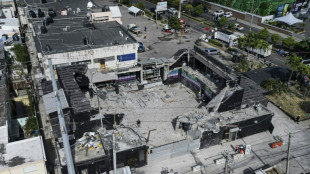
-
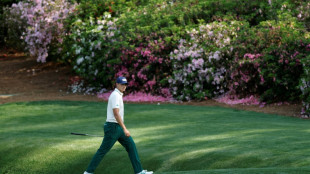 Aberg closes strong at 'sneaky hard' Augusta National
Aberg closes strong at 'sneaky hard' Augusta National
-
US auto union praises some Trump tariffs
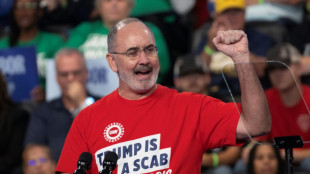
-
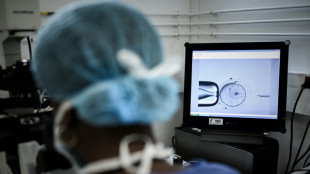 Australian IVF clinic admits embryo mix-up
Australian IVF clinic admits embryo mix-up
-
Rose: I've played well enough to win Masters but lack the jacket
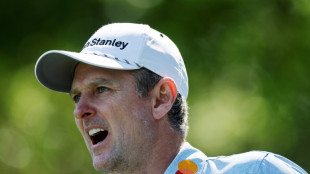
-
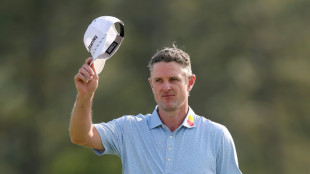 Rose again enjoys 'luxury' of first-round Masters lead
Rose again enjoys 'luxury' of first-round Masters lead
-
Rose rockets to Masters lead, defending champ Scheffler in pursuit

-
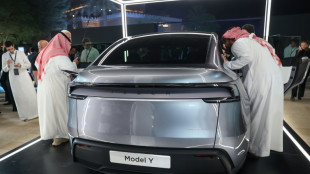 Tesla opens first showroom in oil-rich Saudi
Tesla opens first showroom in oil-rich Saudi
-
Oscars to add new award for stunts

-
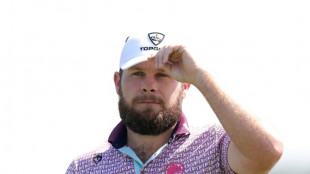 Hatton loves being at Masters but 'It's just so hard'
Hatton loves being at Masters but 'It's just so hard'
-
'Mistakes can happen': Amorim backs Onana after Lyon nightmare

-
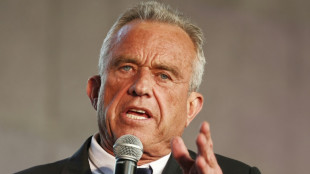 RFK Jr says study will reveal cause of autism 'epidemic'
RFK Jr says study will reveal cause of autism 'epidemic'
-
Tourist family, pilot killed in 'tragic' NY helicopter crash
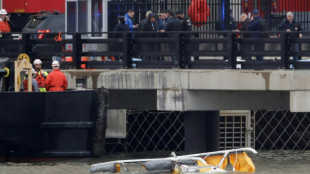
-
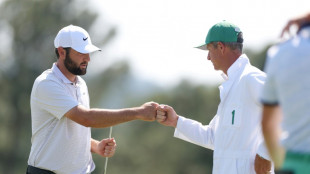 No.1 Scheffler makes strong Masters start to defend title
No.1 Scheffler makes strong Masters start to defend title
-
Man Utd and Spurs draw in Europa League, Rangers hold Athletic

-
 Rose rockets to Masters lead with Scheffler and McIlroy in pursuit
Rose rockets to Masters lead with Scheffler and McIlroy in pursuit
-
Man Utd held late in Lyon after Onana errors in Europa League

-
 Man Utd held late in Lyon after Onana errors
Man Utd held late in Lyon after Onana errors
-
Wall Street rally fizzles as tariff fears resurface
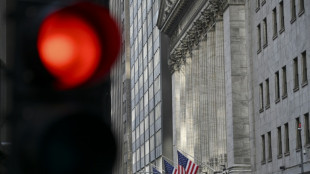
-
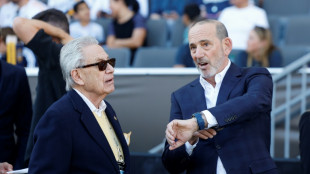 MLS to open 'second phase' of major season overhaul study
MLS to open 'second phase' of major season overhaul study
-
Argentina braves 24-hour strike as it awaits word on IMF loan

-
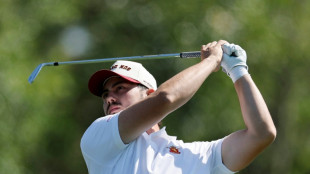 Spain's Ballester finds relief in Masters water hazard
Spain's Ballester finds relief in Masters water hazard
-
Porro rescues Postecoglou as Spurs held by Frankfurt

-
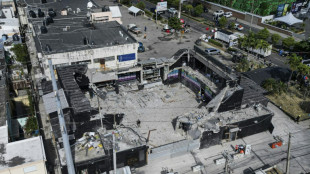 Grieving Dominicans start burying 200+ victims of nightclub disaster
Grieving Dominicans start burying 200+ victims of nightclub disaster
-
CONMEBOL proposes one-off 64-team World Cup in 2030
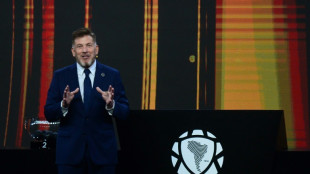
-
 Rybakina on form for Kazakhstan in BJK Cup
Rybakina on form for Kazakhstan in BJK Cup
-
Former Real Madrid coach Leo Beenhakker dies aged 82
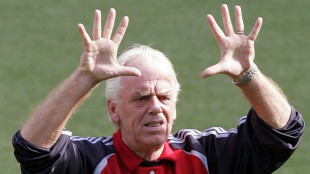
-
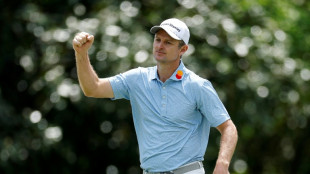 Rose rockets to top of Masters leaderboard, Scheffler one back
Rose rockets to top of Masters leaderboard, Scheffler one back
-
Langer fades after fiery start in Masters farewell
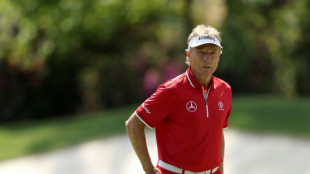
-
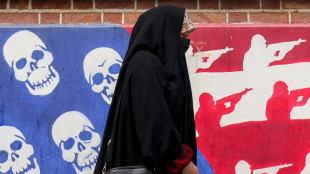 Iran, US raise stakes ahead of key talks in Oman
Iran, US raise stakes ahead of key talks in Oman
-
US-China confrontation overshadows Trump's 'beautiful' trade war
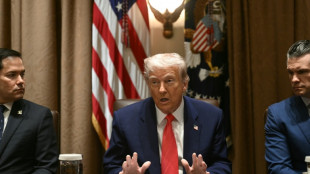
EU Pledges €800 Billion for Defence to Deter Russia
The European Union has unveiled an ambitious plan to allocate €800 billion towards bolstering its defence capabilities, a move widely interpreted as a strategic response to escalating tensions with Russia. Announced by European Commission President Ursula von der Leyen, this initiative aims to transform the EU into a formidable "defence union," shifting its economic priorities towards what some analysts have dubbed a "war economy." The decision, detailed in a recent strategic white paper, comes amid growing concerns over Russia’s military assertiveness, particularly following its ongoing aggression in Ukraine and perceived threats to NATO’s eastern flank.
The €800 billion package, to be rolled out over the coming years, includes €150 billion in EU loans and significant exemptions from the bloc’s stringent debt rules, allowing member states to finance military enhancements without breaching fiscal limits. According to sources cited by the Deutsche Presse-Agentur (DPA), the funds will target seven key areas, including air defence, cyber capabilities, and military intelligence, aiming to close critical gaps in Europe’s defence infrastructure. "If Europe wants to avoid war, it must be prepared for war," the white paper states, echoing a sentiment of deterrence through strength.
Russia’s reaction has been swift and critical. Kremlin spokesperson Dmitry Peskov accused Europe of "aggressive militarism," a charge that carries irony given Russia’s own allocation of nearly 40% of its state budget to military spending in 2025. Russian President Vladimir Putin has overseen a dramatic shift to a war economy since the invasion of Ukraine in 2022, with the country reportedly producing three million artillery shells annually—outpacing the combined output of NATO’s 32 members. This disparity in production capacity has fuelled European fears that Russia could sustain prolonged conflicts, potentially eyeing targets beyond Ukraine, such as the Baltic states or Poland.
The EU’s move also reflects unease over its reliance on the United States, particularly following uncertainties surrounding American support under a potential Donald Trump presidency. While earlier drafts of the white paper explicitly warned of over-dependence on the US, these references were softened in the final version after interventions from von der Leyen’s cabinet, as reported by DPA. Nonetheless, the €800 billion commitment underscores a push for strategic autonomy, with investments channelled into European-made defence systems to reduce external vulnerabilities.
Critics within the EU, however, question the feasibility and implications of such a shift. Transforming a civilian economy into one geared for war requires significant market interventions, a prospect that has raised doubts about political willingness and economic sustainability. The precedent of the United States during World War II—where private industries were placed under strict government oversight—looms large, yet Europe’s fragmented political landscape may complicate such coordination. Furthermore, the redirection of resources comes at a time when the EU is already grappling with energy transitions and post-pandemic recovery, with the €672 billion European Recovery Fund serving as a recent benchmark for large-scale spending.
Public sentiment, particularly in Germany, reflects growing anxiety. A Shell Youth Study cited by rbb-online.de found that the threat of war is now the top concern among young Germans, with fears of conscription and displacement driving calls for preparedness. NATO’s ongoing "Steadfast Defender" exercises, involving 90,000 troops, and the upcoming "Nordic Response" manoeuvre underscore this urgency, simulating defensive operations against a Russian incursion.
While the €800 billion figure is a political statement of intent, its implementation remains uncertain. Analysts note that it may take months, if not years, for funds to translate into tangible military assets. For now, the EU hopes this bold financial pledge will serve as a deterrent, projecting strength to Moscow while navigating internal divisions and external dependencies. Whether it instils fear in Russia or merely galvanises Europe’s resolve, the stakes for the continent’s security have rarely been higher.

Next Generation EU a scam?

Can Poland Rescue Europe?

Finance’s Role in Economic Ruin

Trump’s Tariffs Spark Global Fear

Georgia Slips into Russia’s Grasp

Trump’s Ukraine Economic Colony Plan Stirs Debate

China Targets Dollar at US Critical Moment

Israel escalates War to crush Hamas

Trump, Putin and the question: What now?

Canada challenges Trump on Tariffs

Nuclear weapons for Poland against Russia?




